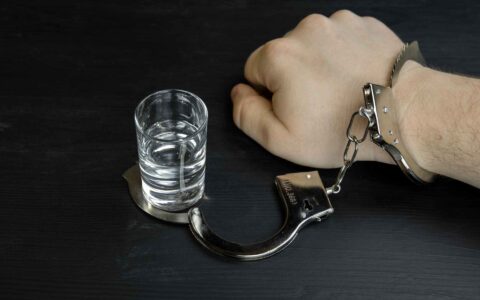What is at the Heart of Addictive Behavior?
Karyn George
Addictive behavior can be described as a pattern of thoughts and behaviors that emerges in a person when they interact with something that they desire and leads to a cycle that includes a preoccupation with the object of addiction, cravings that make it difficult to resist, followed by an overriding sense of shame.
 Addiction can be to substances (alcohol or drugs), pornography, disorderly eating, shopping, gambling, shoplifting, or any other desire that grips the human heart and takes control over a person’s ability to function without it.
Addiction can be to substances (alcohol or drugs), pornography, disorderly eating, shopping, gambling, shoplifting, or any other desire that grips the human heart and takes control over a person’s ability to function without it.
While the world calls addictive behavior a disease or the result of a genetic predisposition or mental health disorder, the Bible uses less popular terms: sin, and, more specifically, the sin of idolatry. While Scripture may not say anything about addiction specifically, it has a lot to say about idolatry, worship, respecting and stewarding our bodies, lust, sexual immorality, self-control, a sound mind, moderation, and focusing on things that are pure and wholesome.
As Paul says in 1 Corinthians 6:12: “All things are lawful for me, but all things are not helpful. All things are lawful for me, but I will not be brought under the power of any.” This truth, rather than harshly blaming those “suffering with addictive behavior” is the key to overcoming that which enslaves a person.
It gives agency, and, best of all, shows that as Christians, we have the power of Christ to break free from strongholds in a way that is simply not possible for those who don’t have the Holy Spirit.
Of course, alcohol and substance abuse powerfully impact the brain’s functioning, and create a chemical addiction, which adds another layer of difficulty to overcoming addictive behavior. But the God who created us is sovereign and perfectly in control of us and can work to free even the most severe addict.
Breaking the habit never works
Secular programs focus on trying to cure addictive behavior by helping the sufferer to develop enough self-control to “break the habit”. The underlying message is that “you’ll never really be free from your addiction; it is something that is part of you and you just need to do the right things to quell the desire.
While you will always be inclined to abuse alcohol or drugs (or whatever the addiction is focused on), you can develop the habit of abstinence through avoiding contact and keeping your boundaries in place”.
While some of these practices are truly helpful and bring about change, the statistics around long-term sustainability are dire. In and of ourselves, we rarely possess the self-control that is needed to overcome addiction. And so, in spite of initial success, many individuals fall back into patterns of relapse, throughout their lifetime.
Who do you worship?
Biblical counseling presents an entirely different picture of addiction, through what God says in His word. Galatians 5:19 says: “Now the works of the flesh are evident: sexual immorality, impurity, sensuality, idolatry, sorcery, enmity, strife, jealousy, fits of anger, rivalries, dissensions, division, envy, drunkenness, orgies, and things like these. I warn you, as I warned you before, that those who do such things will not inherit the kingdom of God.”
If the cravings and actions of our flesh are evident, then through them our heart is revealed. This shows our affection, our devotion of time and energy, and our longing. Behind the object of addictive behavior (the object being alcohol or food, for example), is usually a craving of the flesh or an idol that cannot be satisfied in our current context, and drinking alcohol to excess or binge eating offers some temporary relief from the discomfort.
The sin is that we care more about the idol than about worshipping God in the way He requires. As well-respected biblical counselor and author Edward Welch says: “Our problem is not outside of us located in a liquor store or on the Internet; the problem is within us. Alcohol and drugs are essentially satisfiers of deeper idols. The problem is not the idolatrous substance; it is the false worship of the heart.”
Putting on the new
How then, is the battle against the idolatry of the heart won to cure addictive behavior? The Bible shows the need to replace the unhelpful, destructive habit with a new godly habit.
You were taught, with regard to your former way of life, to put off your old self, which is being corrupted by its deceitful desires; to be made new in the attitude of your minds; and to put on the new self, created to be like God in true righteousness and holiness. – Ephesians 4:22-24
While we gain a new heart when God saves us, the human problem of sin remains and each of us differs in the particular way in which we are tempted to sin. But, as we are instructed in God’s word, as we choose to put off the old self, and put on the new self instead, by worshipping God and obeying him, he will gradually replace the false satisfaction of addiction, and the addictive cycle will be broken.
God’s Word as the sword
 If you suffer from addictive behavior, you can have great hope that there is a pathway to freedom. It is, however, not a “quick fix” and will likely involve a long journey filled with struggle. The fact that ensuring and persevering in it will lead to victory, and not just another relapse and continued pattern of addiction, is an incentive for staying the course.
If you suffer from addictive behavior, you can have great hope that there is a pathway to freedom. It is, however, not a “quick fix” and will likely involve a long journey filled with struggle. The fact that ensuring and persevering in it will lead to victory, and not just another relapse and continued pattern of addiction, is an incentive for staying the course.
Due to the firm grip that addictive substances have on people, it is highly recommended that you do not walk this road alone but connect with a well-trained biblical counselor who will help you through every stage of your transformation.
Biblical counselors use God’s Word as the Sword to cut to the heart of a person’s addictive behavior. While every person will be convicted individually, they could use certain Scriptures as a basis for meditation and reflection. The 1 Corinthians 6:12 verse referred to above is an example, given that it is all about recognizing the freedom that we have in Christ to not be enslaved to any kind of idol.
It is also important, once the root cause, or root idol, has been fully recognized, for the individual to repent of their sin, along with the consequences it might have caused to others around them. It then means taking active steps to “put off” the old – dissociating from unhelpful influences and putting boundaries in place to ensure that the temptation is not directly within reach.
These are in line with secular methods for curbing addictive behavior, but what is different in the life of the believer is the renewing of the mind, putting on the “new self” and worshipping God, immersing oneself in His Word, getting involved in the church community, and letting the Holy Spirit do the work of changing one’s motives, thoughts, desires and actions.
 When people are caught up in addictive behavior, they can become more feelings-oriented, looking for emotional highs. The biblical path to breaking free is not exciting in the way that a secular program can feel initially, but about slowly and surely continuing the process of repenting and believing and being able to look back and see that one no longer needs the comfort or relief they sought in engaging in their addiction, but are more fulfilled in Christ.
When people are caught up in addictive behavior, they can become more feelings-oriented, looking for emotional highs. The biblical path to breaking free is not exciting in the way that a secular program can feel initially, but about slowly and surely continuing the process of repenting and believing and being able to look back and see that one no longer needs the comfort or relief they sought in engaging in their addiction, but are more fulfilled in Christ.
The verse in Galatians 5:1 will be completely true for the person cured of addiction: “It is for freedom that Christ has set us free. Stand firm, then, and do not let yourselves be burdened again by the yoke of slavery.” It is absolutely a battle worth fighting because it has already been won in Christ.
To meet with a Biblical counselor to learn more about overcoming addiction with the help of the Holy Spirit, contact our office today.
“Smoker”, Courtesy of Reza Mehrad, Unsplash.com, CC0 License; “Handcuffed”, Courtesy of Bermix Studio, Unsplash.com, CC0 License; “Supplication”, Courtesy of Marcos Paulo Prado, Unsplash.com, CC0 License; “Praying Woman”, Courtesy of Marcos Paulo Prado, Unsplash.com, CC0 License








